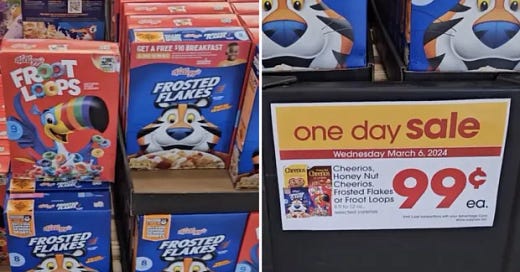Kellogg's, the breakfast giant known for its sugary cereals and Tony the Tiger, faces social media reckoning. A once-loyal customer base, particularly younger generations active on TikTok, is driving a boycott sending ripples through the food industry. But this boycott isn’t staged with traditional media or celebrity endorsements—it's the power of every…
Keep reading with a 7-day free trial
Subscribe to Marketing Accountability Council (MAC) to keep reading this post and get 7 days of free access to the full post archives.



